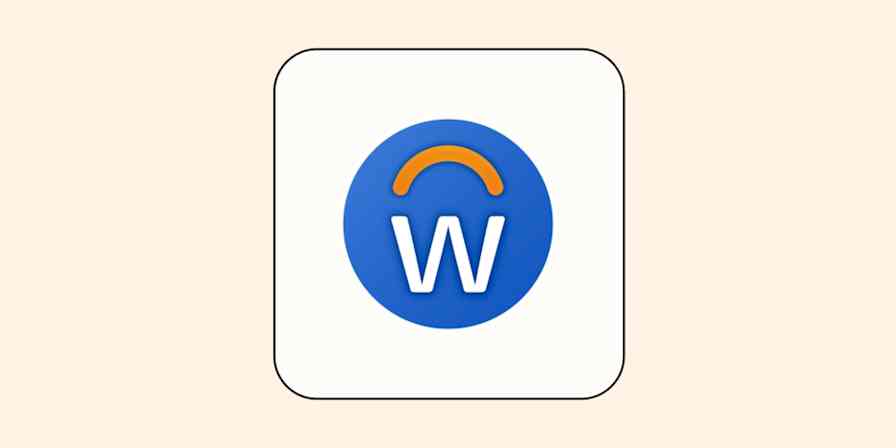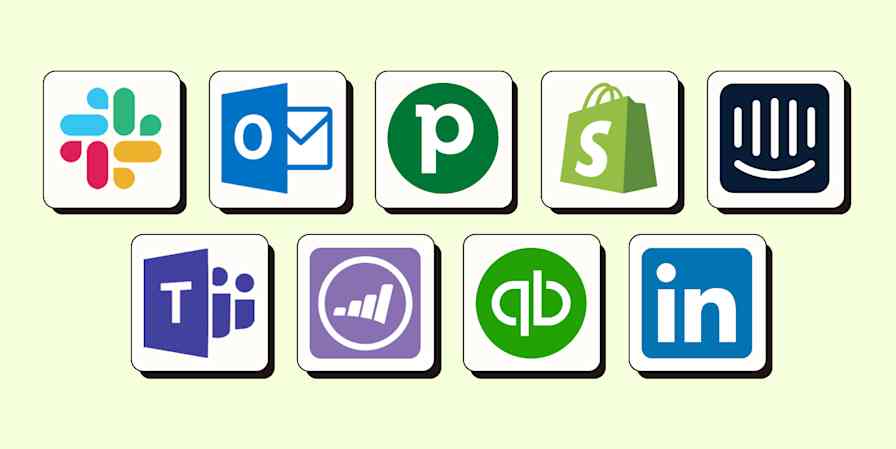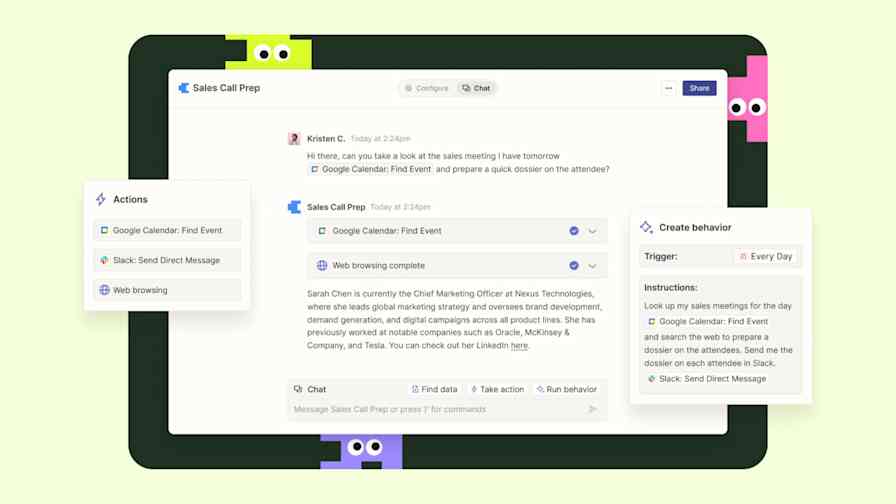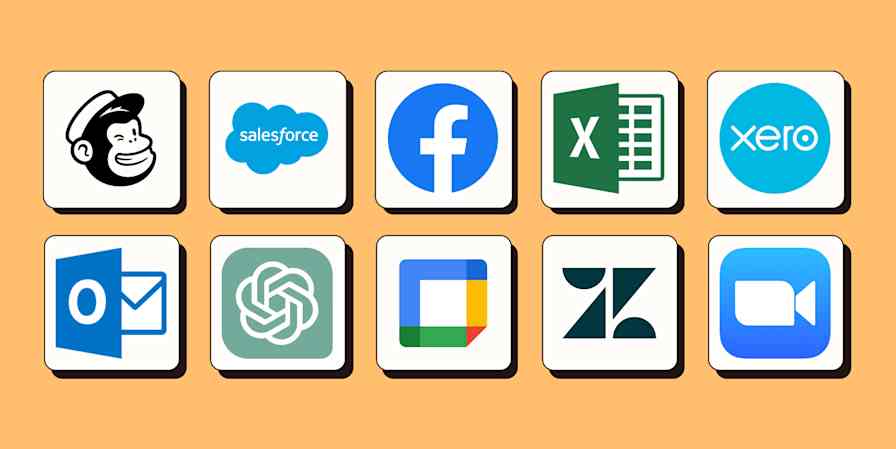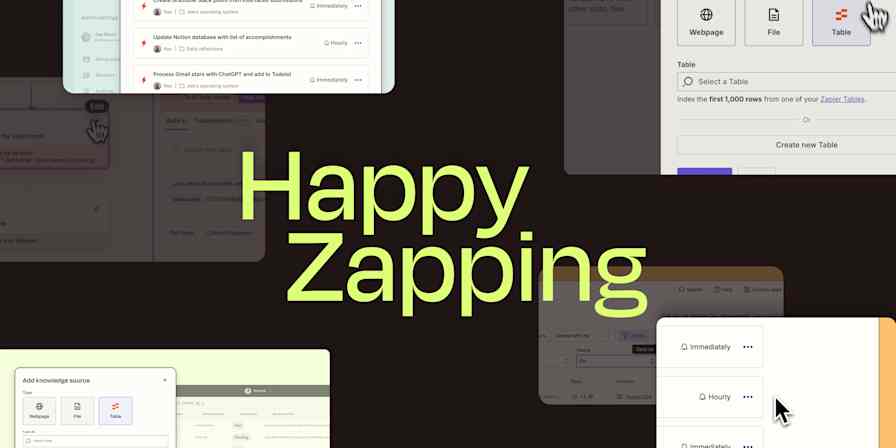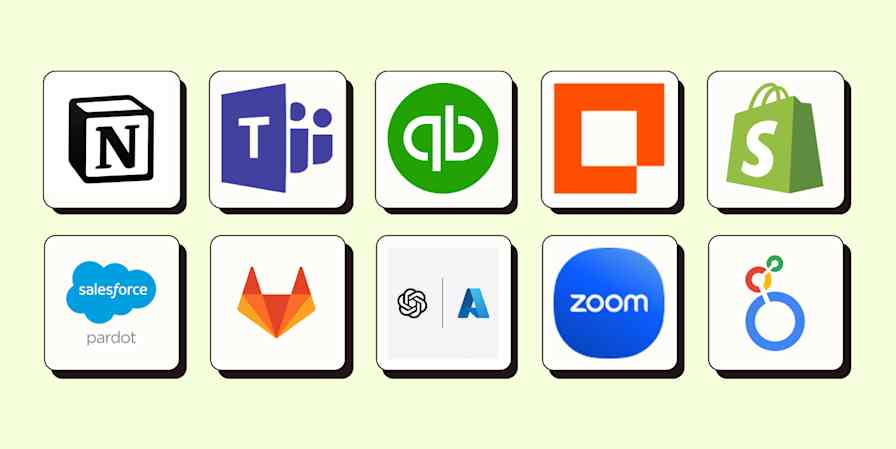Product news
3 min readSeeing is believing: Introducing the new Visual Editor
Unlock the magic of Zapier with our latest updates to the Zap editor.
By Eric Serdar · August 15, 2023
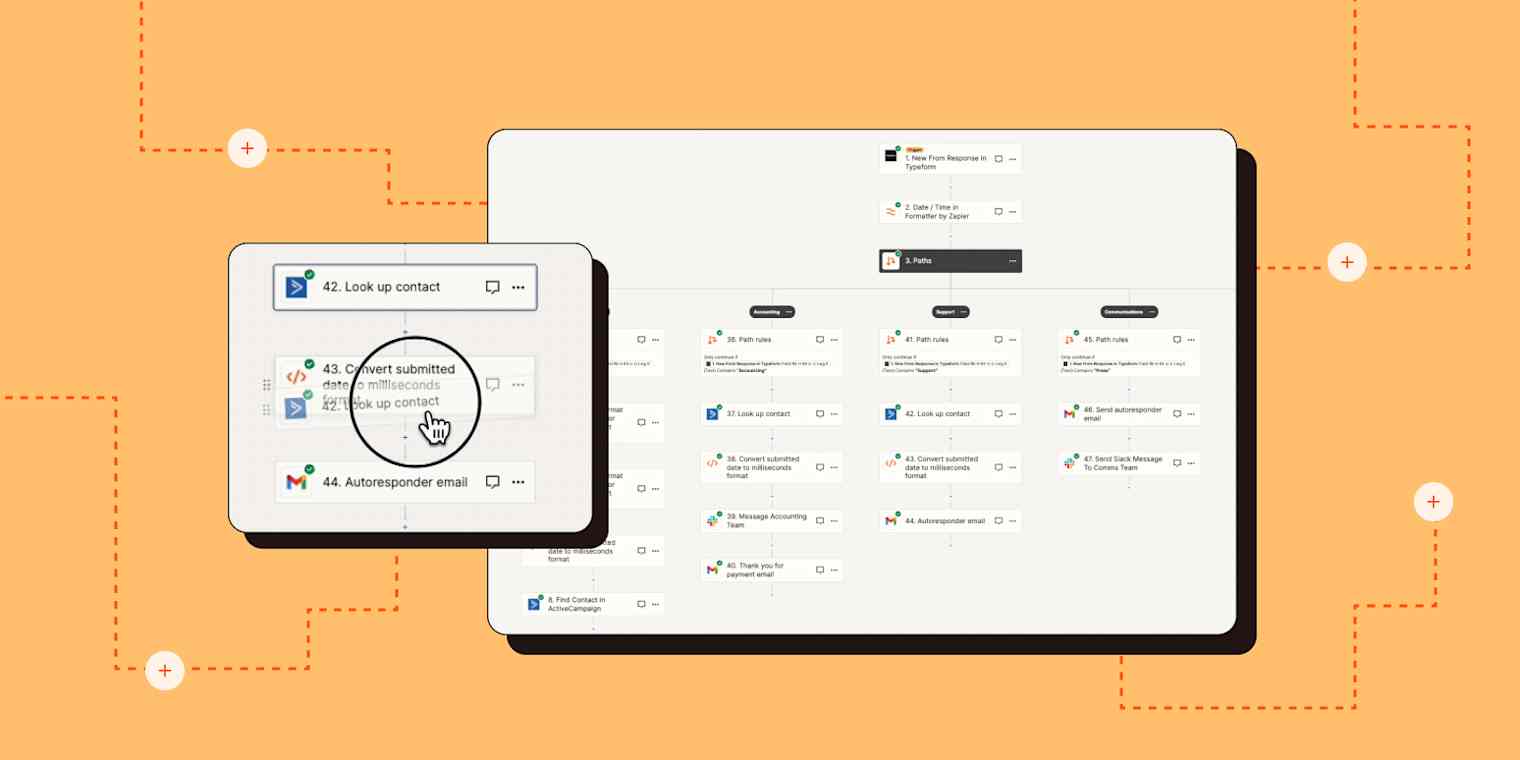
Get productivity tips delivered straight to your inbox
We’ll email you 1-3 times per week—and never share your information.
mentioned apps
Related articles
Improve your productivity automatically. Use Zapier to get your apps working together.


